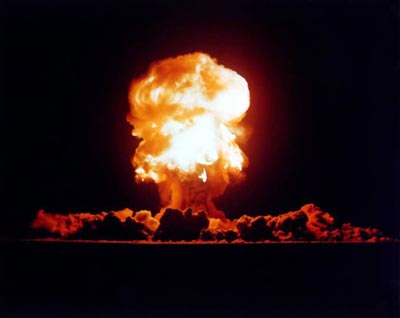Iraq And North Korea And The Development Of Nuclear Weapons
|
The International Atomic Energy Agency (IAEA) is on its toes with Iraq and North Korea. After the fall of Saddam Hussein, the UN was busy trying to find out the extent of weapons of mass destruction program in Iraq.
|
IAEA, under the aegis of the UN, was busy inspecting facilities which were previously thought to have connected to the development of nuclear weapons. And at the same time, halfway across the globe, the IAEA was also trying to get North Korea to allow its monitors to inspect its weapons’ facilities, and trying to get the country to re-freeze the development of its nuclear weapons program.
Iraq and North Korea have been labeled as “Axis of Evil” by the George W. Bush administration, who believe that these two countries are developing nuclear weapons to use it either on other countries or to supply it to rogue states.
IAEA inspectors were expelled from North Korea and it also announced its withdrawal from the Nuclear Non-Proliferation Treaty (NPT). The country has now openly acknowledged that it has plutonium producing nuclear reactor and that its weapons technology is moving along.
In Iraq, the monitors and UN inspectors did not find anything weapons of mass destruction but there is evidence that once upon the time the country was involved in the development of nuclear weapons. However, no one knows where those weapons are today. Nothing was unearthed.
With regard to North Korea, South Korea volunteered to be a mediator between the US and North Korea, as the US wanted a diplomatic solution to the development of nuclear weapons by Pyongyang. The US was not interested in getting into direct discussions with Pyongyang and neither was she ready to negotiate with North Korea.
In the past, the US has placed embargoes and sanctions against Iraq and North Korea as the two countries were seen as threat to global security because of their nuclear weapons program. Today, Iraq is no longer perceived as a threat, but North Korea is totally a different story.

|
